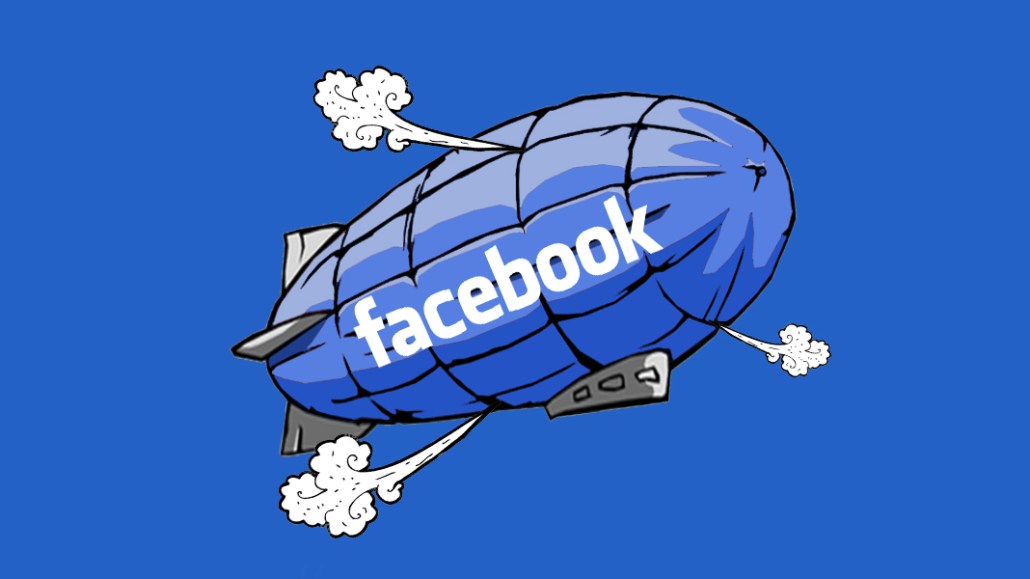Secure your place at the Digiday Media Buying Summit in Nashville, March 2-4
“It’s been a source of some much-needed income’: Sports clubs are building subscription businesses on Facebook

In the scramble to replace revenue lost to the coronavirus pandemic, some sports clubs are selling content exclusively on Facebook. The hope is that fans who can’t pay to watch their teams at stadiums do so on Facebook.
The Savannah Bananas, a baseball team in the wood-bat collegiate summer Coastal Plain League, and the Warrington Wolves, an English professional rugby club that competes in the Super League, are both selling content on Facebook through Fan Subscription Pages.
As it stands, those clubs get 70% of the subscriptions minus applicable taxes and fees. In those instances where an app store from the likes of Apple or Google takes 30% of any transaction from an app downloaded from their app stores, then Facebook does not take any additional revenue share. If the revenue share is less than 30% with the mobile platform or occurs on the web, the remaining share of that 30% goes to Facebook.
“These subscriptions are never going to make up for all the lost ticket sales but if we’re able to generate $30,000 to $60,000 from those sales eventually, then that allows us to reinvest money back into content,” said Jared Orton, president of the Savannah Bananas. “That’s so important for a small business like ours because we can reinvest that money in equipment and talent to create better content more often.”
The baseball team launched the ‘Bananas Insiders’ subscription program in late June, just before the start of the season. Since then, over 800 fans have decided to pay $4.99 a month to be an insider. In return, they can stream all of the team’s home games, watch long-form shows like documentaries about the club and its players, see behind the scenes footage like interviews and training clips as well as participate in competitions.
“Segmented subscriptions are likely to be the future of sports consumption for both broadcasters and clubs,” said Aaron Duckmanton, global head of marketing at video platform Grabyo. “If clubs can add real value with their fan subscription service – which is delivering timely, engaging content to their channel, then fans will respond and the interest in this type of service is only going to increase.”
When the Super League rugby tournament was put on hold in March, Warrington Wolves decided to try and make up some of the lost revenue from postponed matches via subscriptions. Now, there are nearly 1,000 subscribers who initially paid £3.49 ($4.57) a month to watch full-match reruns of archive fixtures from years past. With the season having started at the start of August, those subscribers also get to watch 15-minute highlights of matches 24 hours after they’ve aired on broadcaster Sky Sports before they get to watch the full match a week after it has aired.
“The number of subscribers has been a source of some much-needed income for the club,” said Paul MacLeod, head of marketing for the Warrington Wolves. “Some fans want to have that detailed view of a match regardless of whether they know the outcome so we feel there’s a market for that due to pent-up demand for sports.”
Once they have built a sizeable subscription base, both clubs will explore wider commercial opportunities. For instance, MacLeod said his team would look to offer potential sponsor partners a highly-targeted audience with more digital inventory to leverage. By having this first-party data, the club can work sponsors more directly to show reach and ROI, he added.
The viewpoint was shared by commercial execs at the Spanish soccer team FC Barcelona. F.C Barcelona started testing the service in March prior to football matches being canceled. Commercial execs at the club wanted to see whether charging Facebook fans to watch its content could be a cash cow in years to come.
“We’re piloting the store to see if we can get some kind of return from Facebook,” said FC Barcelona’s CMO Guillem Graell.
More in Media

From feeds to streets: How mega influencer Haley Baylee is diversifying beyond platform algorithms
Kalil is partnering with LinkNYC to take her social media content into the real world and the streets of NYC.

‘A brand trip’: How the creator economy showed up at this year’s Super Bowl
Super Bowl 2026 had more on-the-ground brand activations and creator participation than ever, showcasing how it’s become a massive IRL moment for the creator economy.

Media Briefing: Turning scraped content into paid assets — Amazon and Microsoft build AI marketplaces
Amazon plans an AI content marketplace to join Microsoft’s efforts and pay publishers — but it relies on AI com stop scraping for free.





